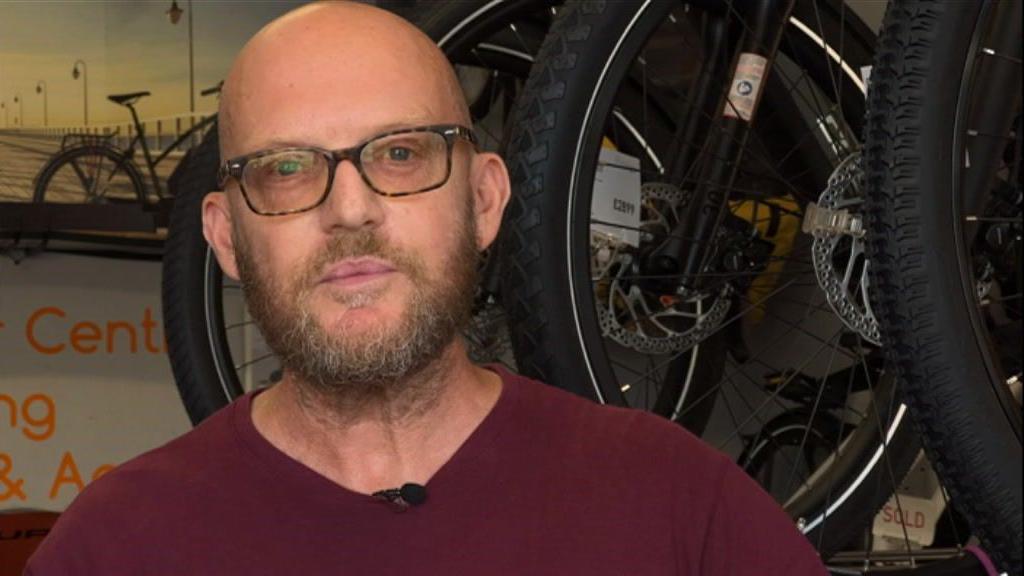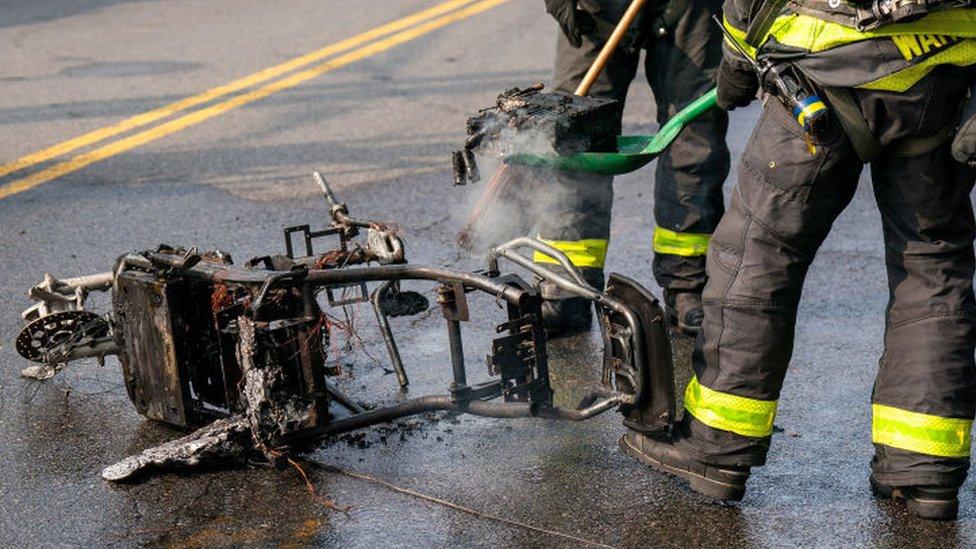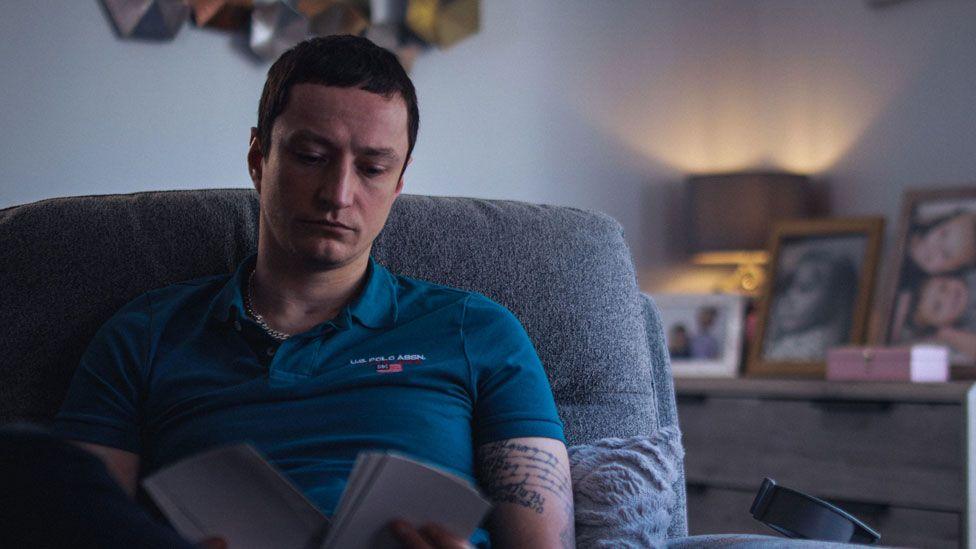Safety warning as e-bikes grow in popularity

"Lithium-ion batteries can catch on fire quickly," Ben Thompson from Avon Fire & Rescue Service said
- Published
The widespread popularity of e-bikes and e-scooters means "it is a bit of a wild west out there" in terms of safety, an electric bike shop owner has said.
Last month, a senior coroner called for government action over electric bike battery fires after the death of a man who was trying to escape a blaze at his home.
In the Kings Speech this week, His Royal Highness promised better regulation of high risk products such as lithium-ion batteries, which are found in these vehicles.
Welcoming the news, David Tod of Take Charge Bikes in Bristol said: "Some of the stuff on the internet isn't so safe. If you overcharge these batteries they will continue to charge and it will ultimately end in a volatile situation."

Abdul Oryakhel died while trying to escape a blaze caused by a lithium-ion battery
Abdul Oryakhel fell from the window of his 16th floor flat on Stapleton Road in Bristol on 25 September 2022 after a lithium-ion e-bike battery pack overheated and ignited.
Following an inquest into the 30-year-old's death, Maria Voisin, senior coroner for Avon said there was a "lack of understanding of the dangers" of lithium-ion batteries used for e-bikes and e-scooters.
In a report, she has urged the government to take action over lithium-iron fires. A response to her report is required by 12 September.
In the King's speech on 17 July, the government promised better regulation of high risk products such as lithium-ion batteries.
Safety campaigners hope that will mean a clampdown on online e-bike sellers.

David Tod advised people to buy e-bikes from reputable sellers
Mr Tod has been selling e-bikes in his shop since 2010. He said he has seen a lot of bikes with electrical issues in his time.
"Unfortunately, I think there's a lot of cheap and cheerful bikes out there that look really, really pretty," he said.
"They seem to be quite well priced but the manufacturing is slightly lacking in quality, especially in the battery areas and the chargers."
"Some people definitely tamper with the batteries and it's not a wise idea."
He recommends buying e-bikes and e-scooters from brick and mortar shops or a reputable online store.
He also said the UKCA trademark "guarantees that it's a good quality bike".
"The best advice is go to a local bike shop that you know has experience with e-bikes," he said.
How to keep safe
In 2018, Avon Fire and Rescue Service attended just three fires involving lithium-ion batteries. Last year that had increased to 53 calls for help, and so far this year firefighters have attended 40 calls involving the batteries.
Ben Thompson, Avon Fire and Rescue Service's group manager for prevention and protection, said with so many lithium-ion batteries in circulation "it was probably inevitable in some extent that we would get some problems".
"They can on occasion catch fire or explode and if they do so they catch fire very quickly," he said.
The fire service backed the coroner's call for tighter regulations and have issued safety advice.
Do not try to tackle a fire involving lithium-ion batteries yourself, dial 999 and ask for the fire service
Make sure you have smoke detectors that are tested on a regular basis
Do not charge lithium-ion batteries at night or in the room where you sleep
Think about how you will get safely from where you sleep out of the house and do not charge anything on that route
If you damage a battery, for example by crashing a bike, check it for signs of damage and replace it if you have any doubts
Do not charge a damaged battery
Use professional installers if you want to retro-fit a bike with a battery and get second-hand items properly checked
Buy replacement chargers from a trusted retailer and never use a counterfeit charger
There is more advice on the Avon Fire and Rescue website, external.
Follow BBC Bristol on Facebook, external, X, external and Instagram, external. Send your story ideas to us on email or via WhatsApp on 0800 313 4630.
Related topics
- Published28 June 2024

- Published9 February 2024

- Published12 June 2024

- Published26 February 2024
